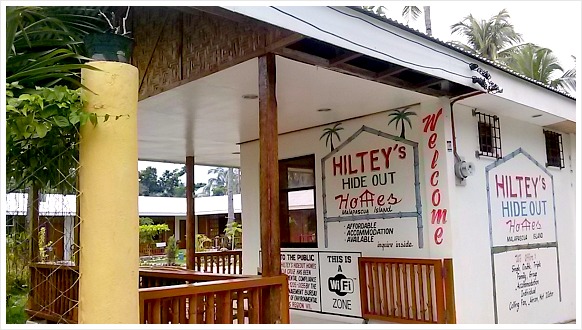Philippine Cebu
Environmental Policymaking
Direct Participation - Cebu Environmental Policymaking
Direct participation in this category implies that a particular NGO can influence government’s environmental policy-making by becoming a representative and actively participate in relevant meetings or fora officially conducted by an agency or an event led by government officials.
Gais and Walker (2006) refer to this strategy as “inside” strategy, which attempts to directly influence policymakers and legislators.
Palawan - Cebu Environmental Policymaking
Palawan, an elongated island situated in the Western side of the country, is a special island because of its diverse plant and animal life untouched for many centuries.
However, because of human population expansion, development projects, and economic development schemes of both local and national governments, Palawan’s biodiversity has been severely threatened prompting its civil society to exercise their rights to protect their island and its natural resources that sustain them.
Due to the efforts and active participation of Palawan’s civil society groups an integrated NGO—the Palawan NGOs Network, Inc. (PNNI)—has been established to “present a broader NGO consensus that would carry more weight in the policy making process in various local government units in the province” (PNNI website).
In response to the organization’s united voice, the Philippine government created a special policymaking body to address Palawan’s socio-political and environmental issues: the Palawan Council for Sustainable Development (PCSD).
The role of this council is exclusively for Palawan and it is directly under the Office of the President of the Republic of the Philippines (http://www.pcsd.ph).
PNNI sits as an NGO representative to the PCSD and “actively engages itself into the arena of developmental debate and sees its role . . . as an advocate of policies that will directly benefit the communities as well as influence the development direction of the province towards continuous protection of Palawan’s environment” (PNNI website) in order to monitor the Council’s proper implementation of the Environmentally Critical Areas Network (ECAN), a systematic policy for the protection and proper development of Palawan (http://www.pcsd.ph/accomplishment).
Philippine Federation for Environmental Concern
The Philippine Federation for Environmental Concern (PFEC) is another environmental NGO which has a seat at the national PCSD.
In 2007, PFEC actively engaged in the crafting of the new National CBFM Strategic Plan and “ensured the adoption of the multi-sectoral participatory in the whole planning process” (http://environmentalfederation.com).
Aside from the CBFM Program and other forest management activity, PFEC has taken strong policy advocacies and positions on mining, genetically modified organism (GMO), and biodiversity issues.
In particular, due to FPEC’s engagement with DENR on forestry policy reforms, there are already three draft DENR orders which have recently come up for discussion including the Sustainable Forest Management bill (PFEC website).
Alliance Against Mining - Cebu Environmental Policymaking
The Alyansa Tigil Mina (against mining alliance) had a seat at the PCSD until last year (2009), according to the organization’s National Coordinator (information obtained through personal correspondence).
The Alliance is not actually against all mining, but only against irresponsible mining groups that cause human and environmental destruction, instead of providing benefits to all concerned parties.
Together with other civil society representatives at the PCSD, ATM has been protesting against mining until it gave up its seat last year (www.alyansatigilmina.net/). However, ATM has been supporting communities struggling against destructive mining projects until now. One of ATM’s recent “areas of struggle” is at Sibuyan Island, which is experiencing the menace of open pit mining.
Green Philippines
One organization has another way of directly influencing policymaking, which is, lobbying through the Senate.
The Luntiang Pilipinas (Green Philippines) is an organization established by Senator Loren Legarda, an active “green warrior” who envisioned that this organization would be the catalyst in protecting and preserving the Philippine forest through various activities involving all stakeholders in the society (www.luntiangpilipinas.com.ph/).
In the Press Release of the organization’s website, the Senator directly asked the newly elected President Aquino III to immediately convene the body that tackles the issue on climate change because it affects national survival and that it deserves top priority for the government.
Compared with the PCSD, senators have stronger influence in policymaking since they can speak directly to the President.
Haribon Foundation
Among the NGOs that have representations at the PSCD, only the Haribon Foundation has a permanent seat.
Being one of the pioneers in environmental protection and conservation, it gained prominence and credibility through its struggles in attaining its mission. Since direct participation through PCSD or DENR is a special privilege and hard-earned status, only very few NGOs have this capability to influence policy.
For that reason, even though an NGO has gained the support from both government agencies, passing through the whole process in the Congress could make a different policy outcome.
Nevertheless, a non-governmental organization having this privilege is still in a better position to impact policy outcome than those that do not have the status at all. And that is because the fact that including NGOs in the process is an admission that the government will take into consideration their policy proposals.
The case of Haribon and other groups or individuals has proven this to be true and effective NGO activity.
However, the fact that NGOs have greater resources in terms of resolving environmental issues, providing very limited space for them in a governmental forum is still not a satisfactory government gesture from NGOs’ point of view.
Certainly, this is a question that both the government and the NGO need to seriously consider.
Better Cebu environmental policymaking and active participation from among various groups and civil society can enhance a productive tourism program.
Return to Cebu Environmental Page from Cebu Environmental Policymaking
Return to Bluewaters Home from Cebu Environmental Policymaking
Book Your Activity Here...
Please Like, Share...
Leave Messages...
|
|
Book & confirm your hotel room quickly and safely with Agoda Company. Agoda uses a state-of-the-art technology when processing your transaction online. Traveling Cebu is Agoda's official partner for eight years now. Find now your hotel here or below.



